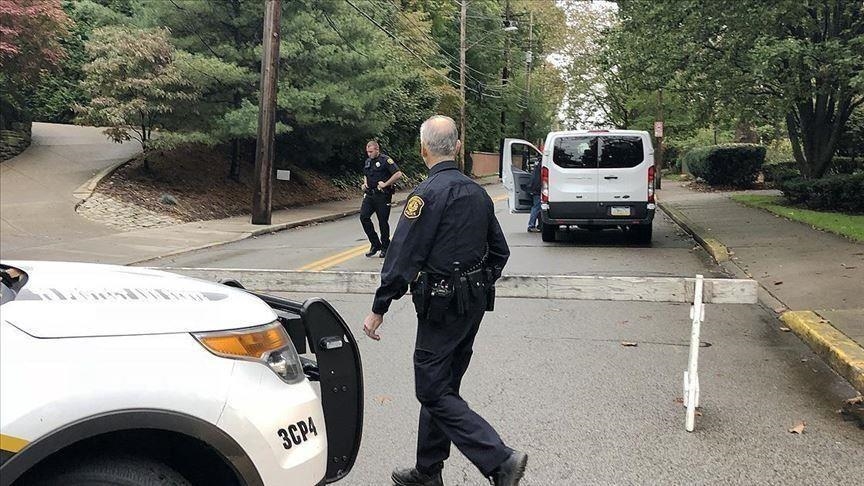Hate crimes against Asian American and Pacific Islanders on rise in US
AAPI community believes awareness is key to reducing number of hate-related crimes

HOUSTON, Texas
Hate crimes against the Asian American and Pacific Islander (AAPI) community continue to rise in the US.
According to Stop AAPI Hate, a non-profit organization, a total of 10,905 hate incidents against AAPI residents were reported from March 19, 2020 to Dec. 31, 2021.
Of the AAPI hate crimes recorded by the organization, 4,632 of those incidents happened in 2020 after the COVID-19 pandemic began, while 6,273 occurred in 2021, an increase of more than 35%.
There is a substantial increase in the volume of hate-related crimes against the AAPI community from 2020 to 2021, especially when compared to the Federal Bureau of Investigation (FBI) statistics from the year before the pandemic.
According to the FBI, the number of anti-Asian hate crimes rose from 158 in 2019 to 279 in 2020, an increase of more than 76%, but a significantly smaller amount of hate crimes in total.
“It is no secret that former President (Donald) Trump often blamed the pandemic on the ‘Chinese virus,’” said Rogene Gee Calvert, an AAPI advocate with OCA Greater Houston, a non-profit organization.
“By targeting and blaming a particular group, it focuses attention and responsibility on them, whether or not it is warranted,” Calvert told Anadolu Agency.
“Anti-Asian hate is not new but with this blame by the former president, the pandemic unleashed whatever hatred and animosity that might have been under the surface, to emerge and be normalized to blame ‘Chinese.’”
Incidents
One of the first high-profile hate crimes against the AAPI community took place in Midland, Texas on March 14, 2020, just a few days after the World Health Organization (WHO) declared the coronavirus a “global pandemic.”
Jose Gomez III, 21, attacked a Burmese family with a knife at a Sam’s Club while the father and his two children were shopping. Gomez shouted “get out of America” while carrying out the knife attack because he believed they were Chinese and responsible for the pandemic.
He pleaded guilty to three counts of committing a hate crime and faces a maximum sentence of life in prison.
“For many people, the Chinese cannot be differentiated from other Asians,” argued Calvert. “So all Asians become targets.”
One year later, on March 16, 2021, Robert Aaron Long, 21, went on a shooting spree at three massage parlors in Atlanta, Georgia, killing eight people, six of whom were Asian women. Long pleaded guilty to a litany of charges, including felony murder and domestic terrorism, and was sentenced to life in prison without parole.
Hate crimes against the AAPI community continued in 2022.
On Jan. 15, a 40-year-old Asian woman was pushed to her death in front of an oncoming subway train in New York City.
Then, on March 29, a 65-year-old Asian woman was beaten by a man on the streets of NYC. The man kicked and punched the woman while saying “F**k you, you don’t belong here.”
And just last month, on May 11, a man went on a shooting rampage at a Dallas hair salon, injuring the owner, an employee, and a customer, all of whom were Korean.
“The horrific stories of Asians being pushed onto the subway, or our elderly who are sucker-punched or stabbed on public streets or business owners and workers who are shot to death, all because they are Asian, is both frightening and unacceptable,” said Calvert.
‘Choose kindness’
According to Stop AAPI Hate, verbal harassment made up the largest total of hate-related incidents with 63%.
Physical assault was the second-largest category with 16.2%.
Civil rights violations – which include workplace discrimination, refusal of service, and housing-related discrimination – made up 11.5% of incidents.
Some 61.8% of the victims of these hate crimes were women.
Breaking down the hate-related crimes against AAPI ethnic groups, Chinese Americans reported the most incidents with 42.8%, followed by Koreans with 16.1%, Filipinos with 8.9%, Japanese with 8.2%, and Vietnamese with 8%.
“I'm disgusted when I see Asians and Pacific Islanders being brutally beaten, attacked, and in some cases killed,” said Nate Jones, an Asian American living in Los Angeles.
“Even if someone is ignorant and blames the COVID-19 pandemic on Asians because the virus supposedly came from China, it's incomprehensible to think that it justifies pushing an Asian man to the ground in San Francisco's Chinatown,” Jones told Anadolu Agency.
“Or an Asian woman onto the train tracks in New York or yelling racial slurs at an Asian Olympian training in Southern California,” he went on to say.
“Choose kindness,” said Roxy Garrity, an Asian American woman living in Raleigh, North Carolina.
“I feel like we are moving backward as a society,” Garrity told Anadolu Agency, saying the best way to combat hate crimes is to make a change in government, which begins at the polls.
“We need to educate our communities and elect more Asian Americans into public office,” Garrity stressed.
“We need to speak up when we see these kinds of attacks and even intervene, if necessary,” added Jones.
“Anyone convicted of a hate crime against Asian Americans and Pacific Islanders needs to be sent to prison for a long time and we need to send a message that this kind of behavior will not be tolerated in the United States.”
Asian Americans and Pacific Islanders across the US believe awareness is the key to reducing the number of hate-related crimes against the AAPI community, and that society must not turn a blind eye to the atrocities being committed.
“We must report these incidents when they happen,” said Calvert. “Only then can we document the extent of the injustices to get something done about them.”
Anadolu Agency website contains only a portion of the news stories offered to subscribers in the AA News Broadcasting System (HAS), and in summarized form. Please contact us for subscription options.







